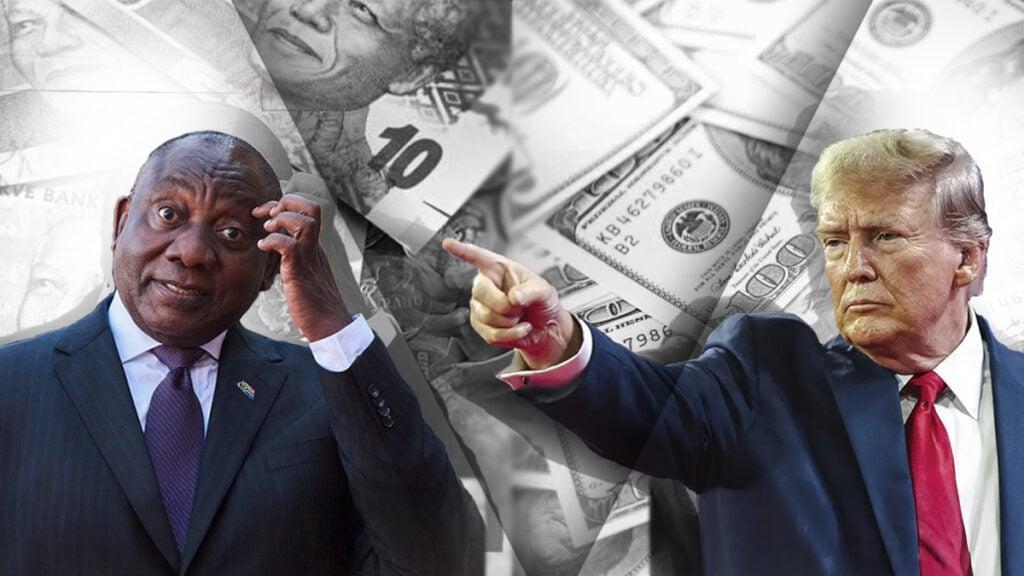Africa-Press – South-Africa. South African investors are increasingly concerned about whether US President Donald Trump will ratchet up his actions against the country, with fears of a potential ban on Americans investing in local government bonds.
While South Africa has relatively little debt held in foreign currencies compared to other emerging markets, American investors are significant holders of rand-denominated debt.
If they are prevented from holding this debt through a ban on investing in South African government bonds, local institutions will have to take on this debt and risk being overly exposed to a single asset.
This would increase financial instability in the country, something the Reserve Bank has repeatedly warned about as foreign investors have sold out of local debt in recent years.
Foreign investors, mainly Americans, hold around 20% of South Africa’s rand-denominated debt and the majority of its foreign currency bonds.
Melville Douglas chief investment officer, Bernard Drotschie, said a ban on funding to the South African government from the US is the last thing the country wants.
Drotschie explained that despite all the talk about the impact of Trump’s tariffs on the local economy, they are likely to have a relatively small impact on South Africa.
South Africa exports relatively little to the United States compared to China and the European Union, which consume nearly half of the country’s exported products.
America only consumes around 8% of South Africa’s exports, and a large share of this is minerals, which are currently exempt from tariffs.
As a result, while impacting the automotive and citrus sectors, Trump’s tariffs will have a small overall impact on the economy, which Drotschie estimates to be around 0.2 percentage points of GDP growth.
“At the end of the day, we actually export very little to the United States. It is a small component, and it is not a major loss for South Africa, but it will have a significant impact on particular sectors,” Drotschie said.
What is more important for South Africa is that the United States remains a significant funder of local government debt and is a major investor, with two-thirds of investable capital sitting in America.
“So it is important for us to ensure that we maintain a good relationship with the Americans. The last thing we want is for Trump to halt funding any South African business or government,” Drotschie said.
“That would have a significant impact on the rand, bond yields, and the country’s growth outcome.”
Crisis looming
US President Donald Trump announced wide-reaching tariffs on several countries
If Trump decides to forbid US investors from investing in South Africa’s debt, the country could face a financial crisis.
According to the Reserve Bank, such a decision would force local financial institutions to take on another 20% or so of government debt – something they are already overexposed to.
Over the past decade, South African banks, insurers, and asset managers have had to pick up the slack left by foreign investors selling out of local government debt.
Around 20% of South Africa’s rand-denominated government debt is held by foreign investors. If they are prohibited from holding these assets, the country could be plunged into a financial crisis as local institutions try to plug the gap.
Efficient Group chief economist Dawie Roodt has outlined this particular threat, saying that South Africa’s deteriorating financial health is an acute vulnerability for the country.
Roodt explained that South Africa’s fiscal accounts are in a serious mess, with the country’s debt load crossing 76% as a share of GDP in the most recent financial year.
The state is currently paying over R1 billion just to service this debt, with interest expenditure being the fastest-growing item in the Budget.
“Approximately 20% of South Africa’s rand-denominated debt is held by foreign investors, with a further 13% being in foreign-currency-denominated,” Roodt explained.
The vast majority is held in US dollars by American investors, with a far smaller share held by European fund managers and international institutions.
“This is where Donald Trump really has a big stick with which he can pressure South Africa, which we have not been talking about yet,” Roodt said.
“If he tells American pension funds or asset managers that they are not allowed to buy South African rand-denominated debt anymore and they start selling that, we will have a financial crisis.”
For More News And Analysis About South-Africa Follow Africa-Press






